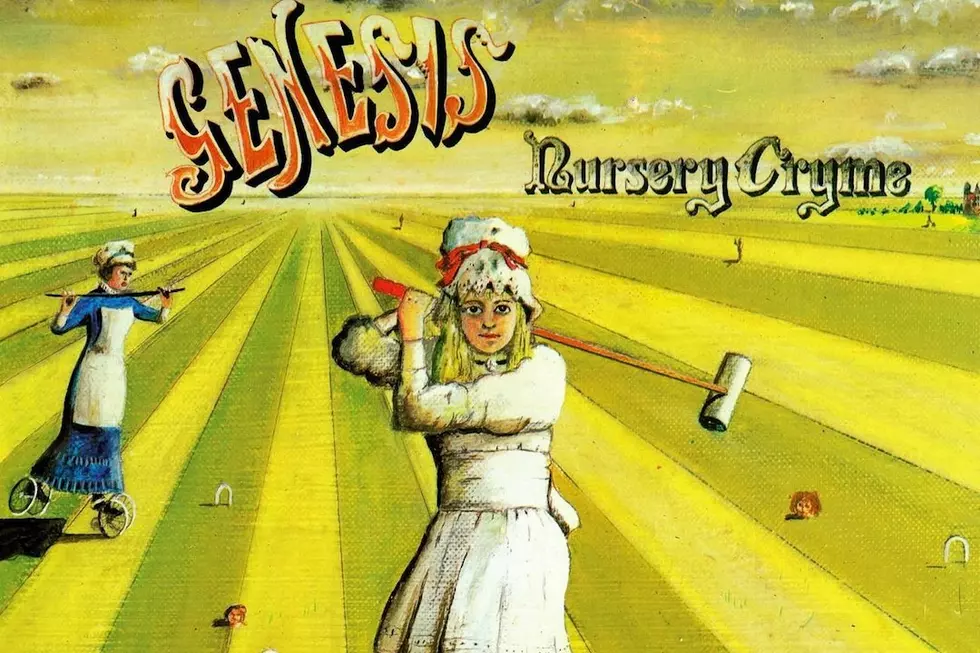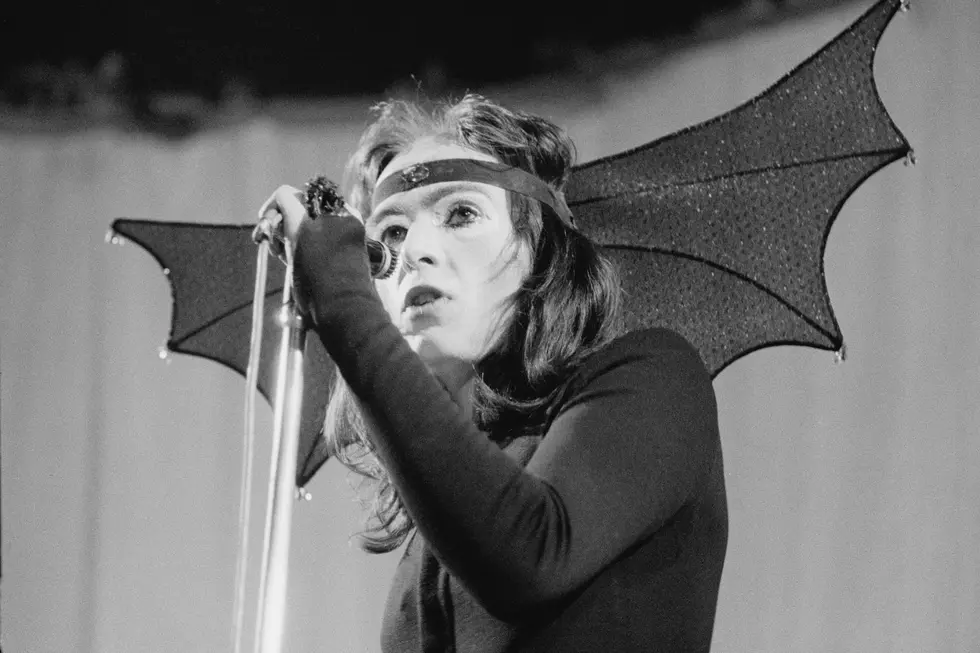
How Genesis Began an Exciting New Era on ‘Nursery Cryme’
Genesis' transitional Nursery Cryme served more as a signpost for future breakthroughs than a stand-alone accomplishment. The album eventually stood as Genesis' first U.K. Top 40 album, but that was only after it became clear how important the then-recent addition of Phil Collins and Steve Hackett really was.
They brought a wealth of new musical ideas and energy to the group, which had released two largely ignored albums before Nursery Cryme arrived on Nov. 12, 1971. But Genesis hadn't yet gelled around this new configuration, leading to an album that guitarist and bassist Mike Rutherford has said possessed "very high highs" and "very low lows."
Dexterous, content-packed tracks like "The Musical Box" (which would be part of Genesis's live set lists through the rest of Collins' tenure), "The Return of the Giant Hogweed," "Seven Stones" and "Fountain of Salmacis" pointed the way toward a string of Top 20 collaborations to come with this lineup. There is the sense, throughout Nursery Cryme, of new discovery – if not consistent success.
Both Collins – a drummer who'd later worked with the jazz-fusion group Brand X – and Hackett made significant early contributions, but nothing came easy.
“Something definitely changed when Phil joined the band," singer Peter Gabriel has said. "He was a real drummer – something I had never been too convinced of with [previous members] Chris Stewart and John Mayhew."
For his part, Hackett eventually found a creative spark as a guitar-playing collaborator with keyboardist Tony Banks. "I will say, being in the band with Steve, who is also very masterful with the guitar and could get lots of different sounds with it, the combination of the two of us produced some combinations that were kind of unusual," Banks told Ultimate Classic Rock in 2015.
Listen to Genesis Perform 'The Return of the Giant Hogweed'
That, however, came later. Finding a place in the established dynamic set up by Banks, Gabriel and Rutherford would take time, and Nursery Cryme suffered for it.
“When someone got excited about something, we would react by playing along to it," Banks added. "That was the way we used to work. I think it is okay to say that Steve and Phil did not really feel up to that, particularly in the early days. They were the new boys, after all, while the three of us were something of a clique."
Hackett was left to try to fit in as best he could. "When I joined the band, the song 'The Musical Box' was already written," he said in 2012. "They were performing it live. They said to me, 'As soon as you join the band, we’ll share all of the writing.' So, I came up with guitar parts on top of what they had written."
He notably debuted a technique that would alter the course of electric guitar history, once it was heard and adapted by Eddie Van Halen. "The Return of the Giant Hogweed" includes Hackett's initial use of guitar tapping, something he did simply to impress his new bandmates at first. (Van Halen later incorporated it into his total approach to the guitar, reaching a much broader audience, and spawning countless imitators, beginning with the 1978 instrumental "Eruption.")
“I was trying to come up with something suitable,” Hackett added, with a chuckle. “I thought, ‘I wonder if it is possible to use both hands on the fretboard?’ You could play extremely fast on one string. I quickly realized that the sky’s the limit for anyone who wants to use that technique. Eddie has, of course, acknowledged the influence. I came up with the technique, and he gave it a name.”
Listen to Genesis Perform 'The Musical Box'
Elsewhere, there were precious few hints about the musical juggernaut that Collins would become, first within the group and then as a solo artist in the '80s. His lone vocal was "For Absent Friends," a song he largely co-wrote with Hackett.
"The spirit of Genesis was Tony, Mike and Peter," Collins told Team Rock in 2016. "I didn’t regard myself as a songwriter then."
That would happen soon enough, in a process helped along by Gabriel's departure. But first Genesis would have to get a better handle on the capabilities, then narrow the focus, of this reworked five-man unit – and even a newcomer could see that.
“Nursery Cryme is not one of my favorites," Collins has said. "It sounds as if everyone were playing the keyboards with both hands. There are fat chords, two guitars and a really big drum sound. Peter’s voice was big too, and all in all it sounded like all those big things had been squeezed onto this small bit of tape.”
Top 50 Progressive Rock Albums
Gallery Credit: Ryan Reed
The 'Silly' Phil Collins Joke That Went Too Far
More From KKTX FM










